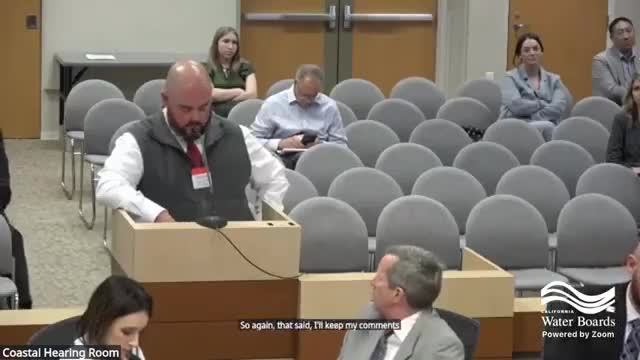Madera County GSA adopts strict water allocation plan amid public feedback
June 04, 2025 | State Water Resources Control Board, Boards and Commissions, Executive, California
Thanks to Scribe from Workplace AI and Family Portal , all articles about California are free for you to enjoy throughout 2025!

This article was created by AI using a video recording of the meeting. It summarizes the key points discussed, but for full details and context, please refer to the video of the full meeting. Link to Full Meeting
Stephanie Anagonson, the director of water and natural resources for Madera County, shared insights from the county's experience with groundwater sustainability agencies (GSAs). She recounted the challenges faced during public meetings in 2018, where stakeholders recognized the urgent need to address groundwater depletion. The county's Board of Supervisors ultimately adopted allocation resolutions aimed at regulating water use, including penalties for overuse. Currently, agricultural users in the Chachala Subbasin are allocated 25 inches of water per acre, which is set to decrease significantly over the next 15 years.
Anagonson emphasized the delicate balance between managing water resources and supporting the agricultural economy, noting that restrictions on water use directly affect economic activity in rural communities. Despite facing lawsuits and public pushback, the county's efforts have been recognized with an award from the California State Association of Counties, underscoring the importance of their work in navigating these complex issues.
The meeting also featured expressions of gratitude towards the staff of the State Water Resources Control Board for their collaborative approach in finding solutions that benefit both local agencies and the state. Board members acknowledged the ongoing challenges related to water quality, rights, and groundwater recharge, and expressed hope for continued cooperation with local entities.
As California faces ongoing water scarcity issues, the discussions from this meeting reflect a commitment to sustainable water management practices that aim to protect both the environment and the livelihoods of residents. The outcomes of these deliberations will play a crucial role in shaping the future of water resources in the state, particularly for communities reliant on agriculture.
Converted from State Water Resources Control Board Meeting - June 3, 2025 meeting on June 04, 2025
Link to Full Meeting
Comments
View full meeting
This article is based on a recent meeting—watch the full video and explore the complete transcript for deeper insights into the discussion.
View full meeting


